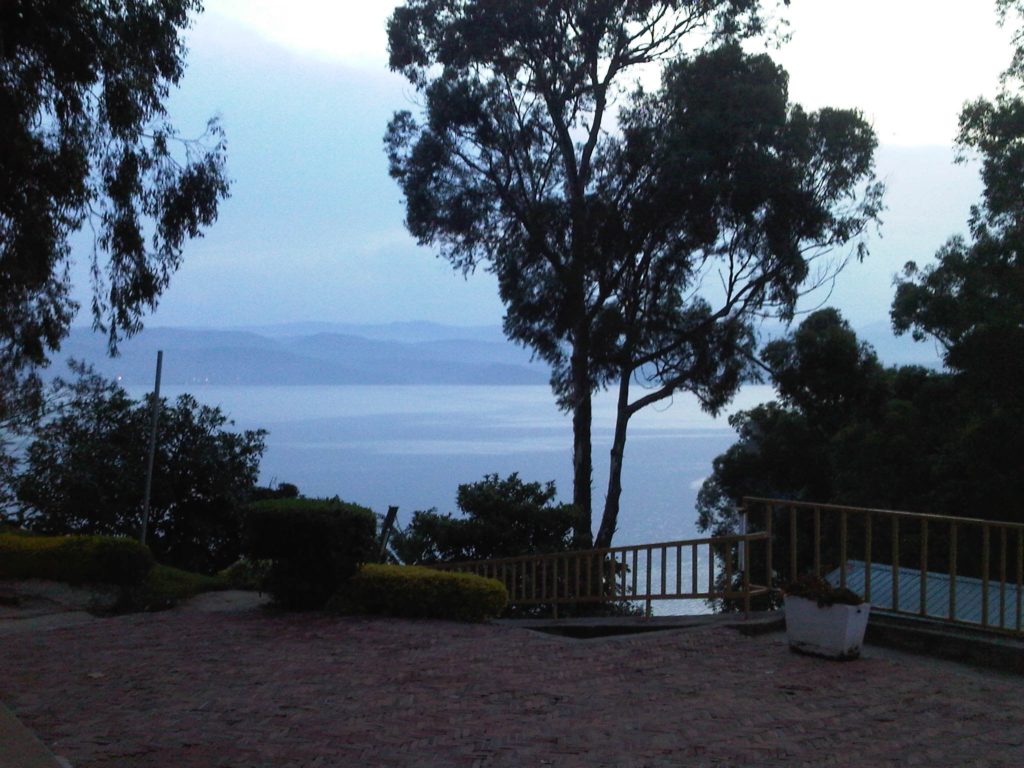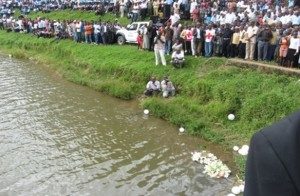
A guest post by Noam Schimmel, a special advisor to Survivors Fund (SURF):
The first day of the Jewish holiday of Passover this year falls on the anniversary of the first day of the Rwandan genocide of the Tutsi. How am I to both celebrate a festive holiday that is central to my people’s faith, values, and history while honoring the memory of victims of the genocide?
I turn to the holiday of Passover itself to try to find a way to integrate these two commitments which are, upon reflection, not only reconcilable but intimately connected to one another.
Passover is a time of celebration but it is also a deeply reflective holiday which is inextricably linked with the memory of profound collective pain and suffering.
Its joy is routed in a story of liberation from oppression and discrimination, from slavery and violence.
But joy and sadness comingle on Passover. And while ultimately Passover is a holiday grounded in hope and deliverance from injustice to justice, indignity to dignity, it is not a holiday which marginalizes the voices of loss and the horrors of the past.
It is a holiday which acknowledges these fully, openly, and without reserve. Indeed it commands their telling in detail, with candor, and with an emphasis on telling the truth in its entirety.
One of the foremost imperatives of the Passover holiday is the commandment to tell the story of the Exodus from Egypt by reading the Passover Haggadah.
The Haggadah is a compilation of prayers, questions, answers, commentary, rituals, songs, and stories about the experience of slavery and the liberation from it. Jews read it and immerse themselves in it experientially through ritual, conversation, and reflection so that every generation will remember the experience of the Jewish people there as they fled slavery and its depredations and brutality towards freedom. This is in large part so that the increasing distance of time will not weaken the memory of what happened, so that the resolve of the Jewish people in the face of persecution will remain strong and their commitment to Judaism and Jewish values undiminished.
So too every year in April Rwandans come together in Rwanda and in the Rwandan diaspora around the world and in the UK to return to memories and stories of the most extreme forms of pain and devastation – of the totalizing violence and radical evil of genocide. They affirm the love felt for those killed in the genocide and rededicate themselves to remember, rebuild, and respect the values of equality, freedom, and respect for difference that were so brutally violated during the genocide.
During this time survivors tell their stories and the stories of their families and friends, what they witnessed and experienced and who they lost and all that was destroyed in their lives as individuals and as communities.
On Passover in the Haggadah we are instructed to encourage children to ask questions and enquire about the holiday, its historical origins, rituals, prayers, and meanings.
So too, in Rwanda, during genocide commemorations, Rwandans wish that the youth will ask why and how genocide occurred in Rwanda so as to nurture and protect the values of equality, freedom, and peace that safeguard against the descent into hatred and violence against the innocent. So as never to repeat what murdered and maimed so many lives.
There are many different kinds of Haggadahs. There is the traditional one that is most widely used across Jewish communities of every type and reflects the common heritage of all Jewish people. And then there are Haggadahs made by specific communities to highlight their own journeys from oppression to freedom, from the denial of rights to their realization. These include Haggadahs by Holocaust survivors who rebuilt their lives in Israel and in other countries around the world and by diverse communities and activists seeking to seed justice.
The Passover story has inspired peoples around the world with its universal message of the possibility of liberation from injustice and oppression and its emphasis on life and continuity against all odds embedded within the particularities of the Jewish experience.
So this year, as I eat the bitter herbs that remind me of the enslavement of my people I will also remember the experience of Tutsis and Hutus who stood in solidarity with them during the genocide.
As I dip bitter herbs into salt water and recall the tears of my people I will recall the tears of the survivors as they tried to survive, to protect family and friends, and rebuild their lives after the genocide.
I will remember the tears of those who did not survive, who pleaded in pain to have their humanity recognized, their rights honored but who were tortured and murdered simply for being Tutsi or for standing alongside Tutsis and refusing to abandon them and be complicit in their persecution.
And as I eat matza for eight days – the bread of affliction – as it is known, I will remember that many survivors in Rwanda today are forced to eat this bread of affliction relentlessly.
As long as they lack decent housing, safe and secure communities, access to quality healthcare, educational opportunity, and economic support to alleviate poverty they are not free and neither are we.
Too many are suffering, too many are marginalized, and too many are unaccounted for and not able to have an equal place at the table as Rwanda rebuilds itself.
My liberation is not complete until their liberation is achieved.
I shall celebrate Passover but I will also caution myself and remind myself that though my people, at a particular time in history were liberated emancipation from oppression is a process, it is never complete, and many peoples – including many Rwandan genocide survivors – are still in bondage.
Our task in the months ahead after the commemoration is not to wait until the next commemoration next year to listen to the survivors, to record and honor their stories and experiences and provide them a platform to tell them, and to meet their most urgent needs.
Rather today, without delay, we must ensure that they have everything they need to lead a dignified life. That none go hungry. That none lack shelter. That all are safe. That everyone can get an education. That all have access to adequate healthcare.
This is our test. This is our purpose.
We must transform their telling, their Haggadah – their stories of the trials they faced, of their survival, and of the challenges that lay ahead into concrete solidarity and partnership with them.
In time, I dream that survivors will create their own uniquely Rwandan Haggadah. A Haggadah that tells the story of their resilience and survival, a repository of their wisdom and pain, hope and aspirations, values and questions, song and prayers, memories and tributes to those they lost, and affirmation of all they have created, brought into the world, and rebuilt.
To the survivors may you only know peace and healing.
Know that you are never alone.
May you be blessed and may all Rwandans and all friends of Rwanda commit themselves to making that blessing of peace, healing, and restorative justice for you real this genocide commemoration and this Passover.
Until you cross as the Jewish people crossed the Red Sea from slavery to freedom, from peril to safety, from fear to hope, from death and darkness to life and light.

